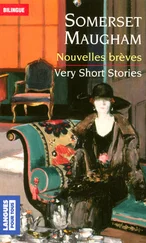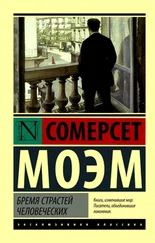| Don't you know that your uncle and I only want your good? |
Ты же знаешь, что мы с дядей хотим тебе только добра! |
| Don't you love me at all?" |
Неужели ты меня совсем не любишь? |
| "I hate you. |
- Я тебя ненавижу. |
| I wish you was dead." |
Хоть бы ты умерла! |
| Mrs. Carey gasped. |
Миссис Кэри задохнулась. |
| He said the words so savagely that it gave her quite a start. |
Мальчик произнес эти слова с такой яростью, что ей стало просто страшно. |
| She had nothing to say. |
Она не нашлась, что сказать. |
| She sat down in her husband's chair; and as she thought of her desire to love the friendless, crippled boy and her eager wish that he should love her-she was a barren woman and, even though it was clearly God's will that she should be childless, she could scarcely bear to look at little children sometimes, her heart ached so-the tears rose to her eyes and one by one, slowly, rolled down her cheeks. |
Присев на кресло мужа и думая о том, как хотелось ей приголубить этого одинокого, хроменького ребенка, как недоставало любви ей самой - она ведь была бесплодной, и хотя, видно, на то воля божья, ей иногда просто невмоготу смотреть на чужих детей,- миссис Кэри почувствовала, как к глазам у нее подступили слезы и стали медленно скатываться по щекам. |
| Philip watched her in amazement. |
Филип смотрел на нее с недоумением. |
| She took out her handkerchief, and now she cried without restraint. |
Она вынула платок и стала всхлипывать, уже не сдерживаясь. |
| Suddenly Philip realised that she was crying because of what he had said, and he was sorry. |
Вдруг Филип понял, что она плачет из-за того, что? он ей сказал; ему стало ее жалко. |
| He went up to her silently and kissed her. |
Он молча подошел и поцеловал ее. |
| It was the first kiss he had ever given her without being asked. |
Это был первый непрошеный поцелуй, который она от него получила. |
| And the poor lady, so small in her black satin, shrivelled up and sallow, with her funny corkscrew curls, took the little boy on her lap and put her arms around him and wept as though her heart would break. |
И бедная женщина - такая сухонькая в своем черном атласном платье, такая сморщенная и желтая, с нелепыми завитушками - посадила мальчика на колени, обхватила его руками и заплакала уже навзрыд, так, словно у нее вот-вот разорвется сердце. |
| But her tears were partly tears of happiness, for she felt that the strangeness between them was gone. |
Но в слезах ее была и отрада: она чувствовала, что между ними больше не было отчуждения. |
| She loved him now with a new love because he had made her suffer. |
Она любила его теперь совсем по-другому - ведь он заставил ее страдать. |
| IX |
ГЛАВА 9 |
| On the following Sunday, when the Vicar was making his preparations to go into the drawing-room for his nap-all the actions of his life were conducted with ceremony-and Mrs. Carey was about to go upstairs, Philip asked: |
В следующее воскресенье, когда священник готовился прилечь в гостиной подремать (все, что он делал, подчинялось строгому ритуалу), а миссис Кэри поднималась к себе наверх, Филип спросил: |
| "What shall I do if I'm not allowed to play?" |
- А что же мне делать, если нельзя играть? |
| "Can't you sit still for once and be quiet?" |
- Неужели ты не можешь хоть час посидеть спокойно? |
| "I can't sit still till tea-time." |
- Ну да, сидеть спокойно до самого чая! |
| Mr. Carey looked out of the window, but it was cold and raw, and he could not suggest that Philip should go into the garden. |
Мистер Кэри выглянул в окно, но на дворе было холодно и сыро; он не мог предложить Филипу пойти погулять. |
| "I know what you can do. |
- Ага, знаю, что тебе делать. |
| You can learn by heart the collect for the day." |
Выучи-ка наизусть сегодняшнюю молитву. |
| He took the prayer-book which was used for prayers from the harmonium, and turned the pages till he came to the place he wanted. |
Он снял с фисгармонии требник и, полистав, нашел нужное место. |
| "It's not a long one. |
- Молитва короткая. |
| If you can say it without a mistake when I come in to tea you shall have the top of my egg." |
Если сможешь прочесть ее за чаем без запинки, получишь верхушку моего яйца. |
| Mrs. Carey drew up Philip's chair to the dining-room table-they had bought him a high chair by now-and placed the book in front of him. |
Миссис Кэри пододвинула стул Филипа к обеденному столу - ему купили высокий стул - и положила перед ним книгу. |
| "The devil finds work for idle hands to do," said Mr. Carey. |
- Диавол ленивым рукам всегда работу отыщет,-назидательно произнес мистер Кэри. |
| He put some more coals on the fire so that there should be a cheerful blaze when he came in to tea, and went into the drawing-room. |
Он добавил углей в камин, чтобы огонь пожарче пылал, когда он выйдет к чаю, и ушел в гостиную. |
| He loosened his collar, arranged the cushions, and settled himself comfortably on the sofa. |
Расстегнув воротник, он поудобнее положил подушки и вытянулся на кушетке. |
| But thinking the drawing-room a little chilly, Mrs. Carey brought him a rug from the hall; she put it over his legs and tucked it round his feet. |
Решив, что в гостиной прохладно, миссис Кэри принесла плед, прикрыла ему ноги и хорошенько подоткнула края вокруг ступней. |
| She drew the blinds so that the light should not offend his eyes, and since he had closed them already went out of the room on tiptoe. |
Она приспустила занавески, чтобы свет не резал ему глаза, и, так как он уже успел их закрыть, вышла из комнаты на цыпочках. |
| The Vicar was at peace with himself today, and in ten minutes he was asleep. He snored softly. |
Сегодня в душе у священника было покойно, и ровно через десять минут он уже тихонько похрапывал. |
| It was the Sixth Sunday after Epiphany, and the collect began with the words: O God, whose blessed Son was manifested that he might destroy the works of the devil, and make us the sons of God, and heirs of Eternal life. |
Это было шестое воскресенье после праздника богоявления, и молитва начиналась словами: "Благословен бог и отец господа нашего Иисуса Христа, по великой милости своей поправшего козни диавола и посулившего учинить нас сынами божьими, достойными царствия небесного". |
| Philip read it through. |
Филип прочел молитву. |
| He could make no sense of it. He began saying the words aloud to himself, but many of them were unknown to him, and the construction of the sentence was strange. |
Смысла ее он понять не мог и стал твердить слова вслух; однако многие из них были ему незнакомы и построение фразы непривычно. |
| He could not get more than two lines in his head. |
Больше двух строк кряду запомнить ему не удавалось. |

![Уильям Макгиверн - Завтра опять неизвестность [английский и русский параллельные тексты]](/books/35168/uilyam-makgivern-zavtra-opyat-neizvestnost-angli-thumb.webp)


